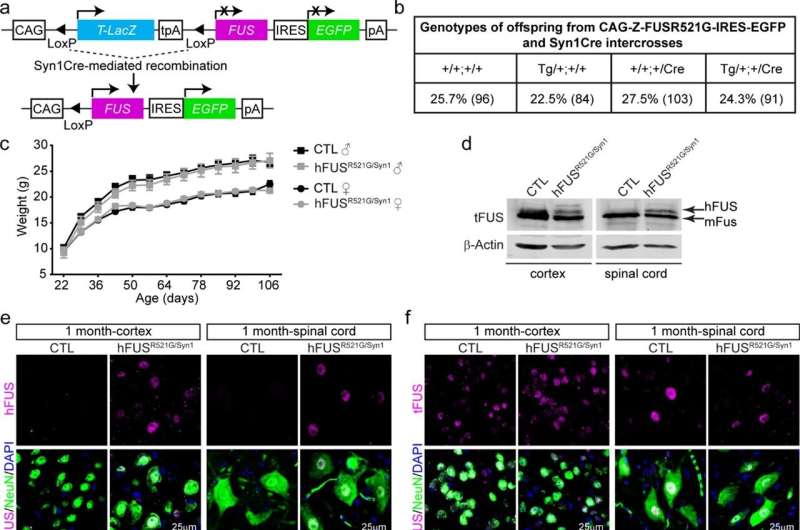This article has been reviewed according to Science X's editorial process and policies. Editors have highlighted the following attributes while ensuring the content's credibility:
fact-checked
trusted source
proofread
Amyotrophic lateral sclerosis: Blocking inflammation to reduce symptoms

In people with amyotrophic lateral sclerosis (ALS), changes in neurons appear to activate immune cells. Lowering the inflammation could reduce the symptoms of the disease, according to a study led by Chantelle Sephton, a professor at Université Laval's Faculty of Medicine.
ALS is caused by the loss of upper motor neurons, located in the brain, and lower motor neurons, which extend from the spinal cord to the muscles. Using a genetically modified mouse model, Chantelle Sephton and her team found that structural changes in the upper neurons occurred prior to disease symptoms.
The study suggests that these morphological changes send a signal to microglia and astrocytes, the immune cells of the central nervous system. When they arrive, their effect is protective, but if they stay too long, they become toxic to neurons. This reduces synaptic connections between motor neurons in the brain and spinal cord, resulting in a reduction in synaptic connections with muscles. These changes lead to atrophy and loss of motor function.
Given this correlation between symptoms and immune response, the research team wondered whether restoring synaptic connections by blocking inflammation might be possible. " We tested a semi-synthetic drug based on Withaferin A, an extract of the Ashwagandha plant, which has been used for thousands of years in traditional Indian medicine," explains CERVO Research Center affiliate Chantelle Sephton.
The drug blocks inflammation and allows motor neurons to return to normal. "We have noticed that neurons regenerate without activated immune cells. The dendrites of motor neurons start to grow and make connections again, increasing the number of synapses between motor neurons and muscles," reports the researcher.
This seems a promising way of improving ALS symptoms, whether the disease is familial or sporadic since both types are associated with inflammation.
Other diseases where inflammation plays a role, such as Alzheimer's, could benefit from this approach.
The study is published in Acta Neuropathologica Communications.
More information: Mari Carmen Pelaez et al, Neuronal dysfunction caused by FUSR521G promotes ALS-associated phenotypes that are attenuated by NF-κB inhibition, Acta Neuropathologica Communications (2023). DOI: 10.1186/s40478-023-01671-1



















